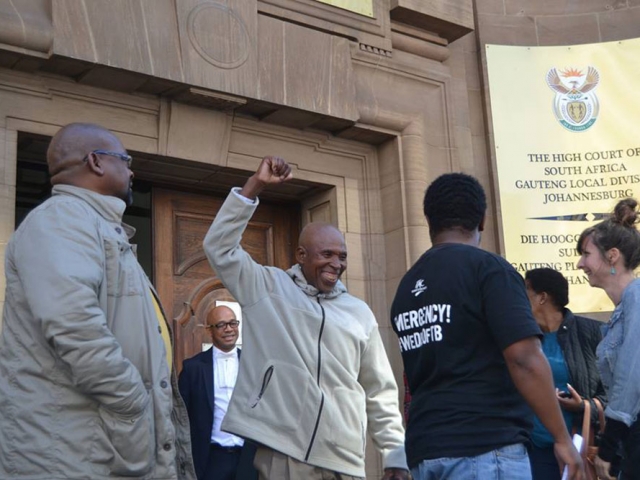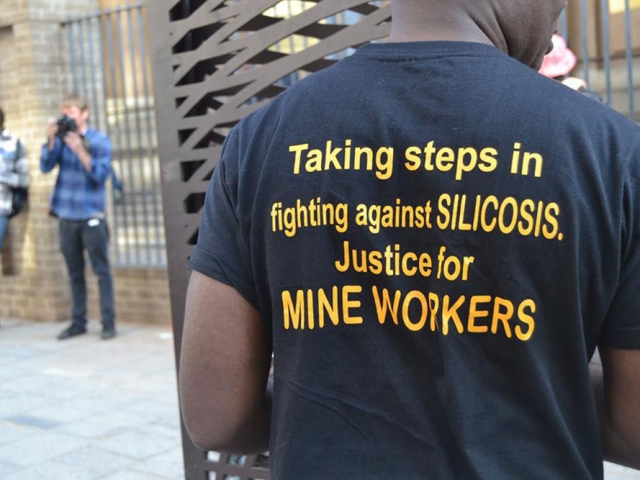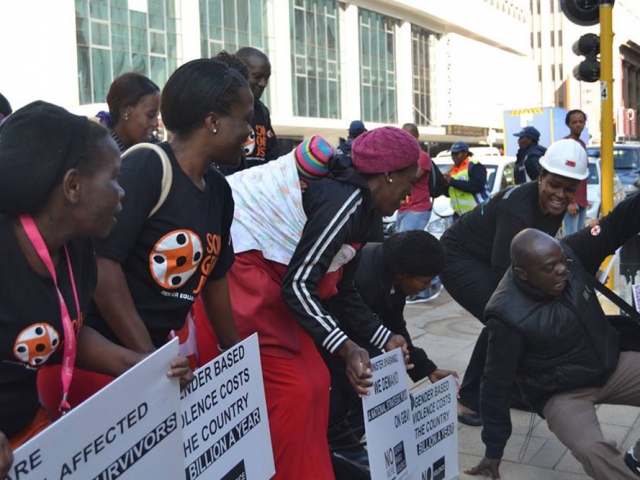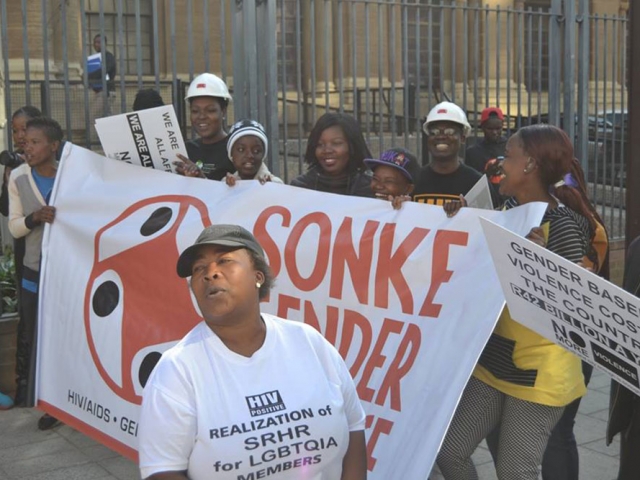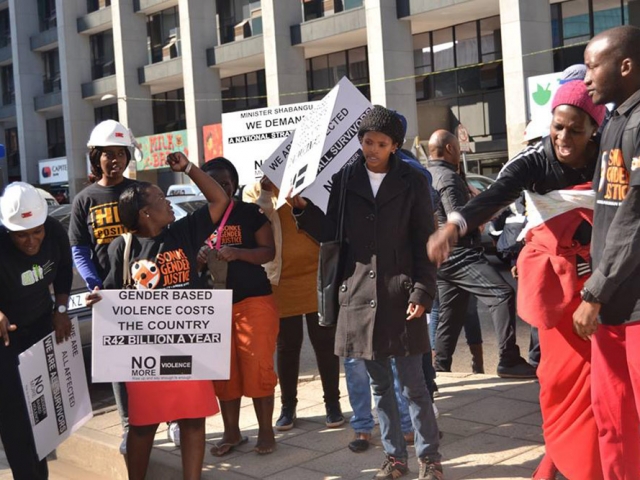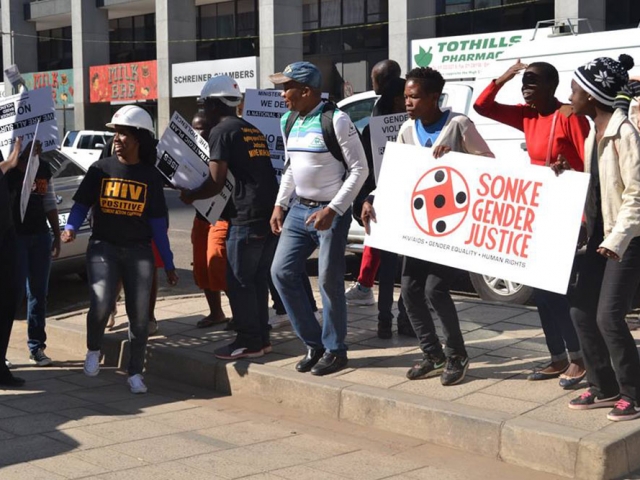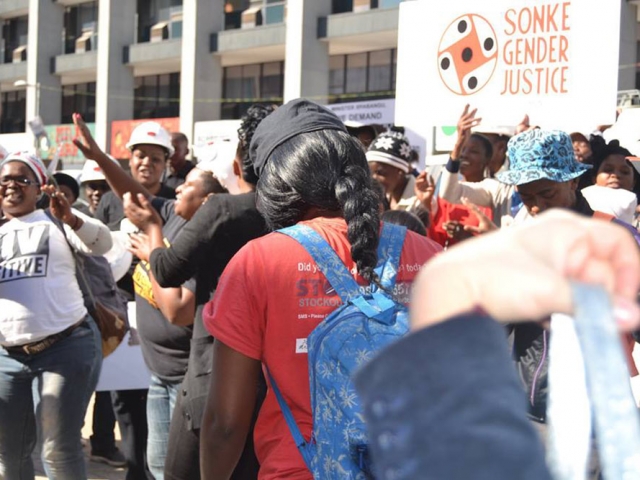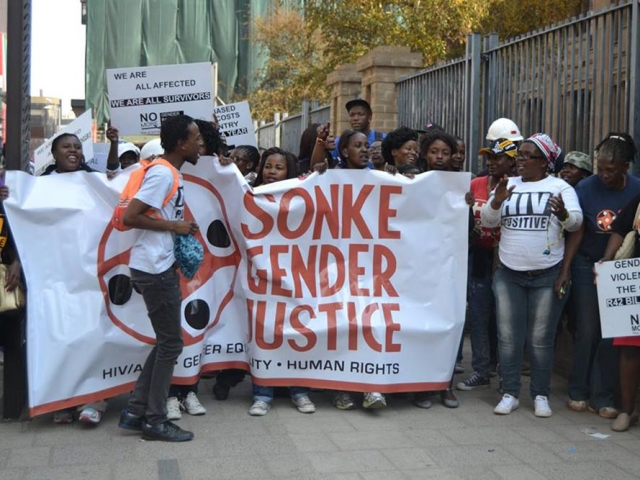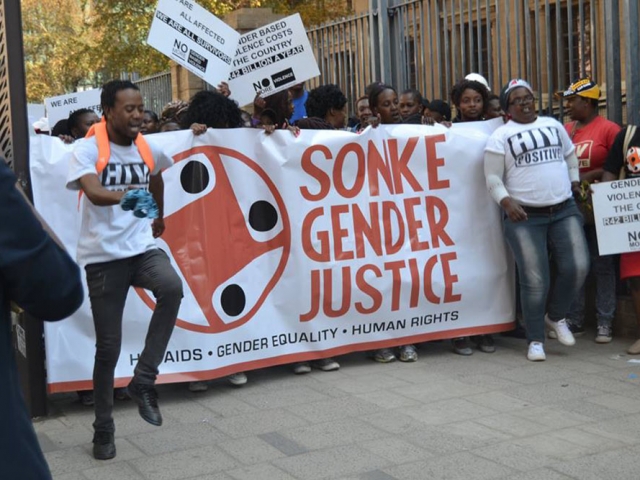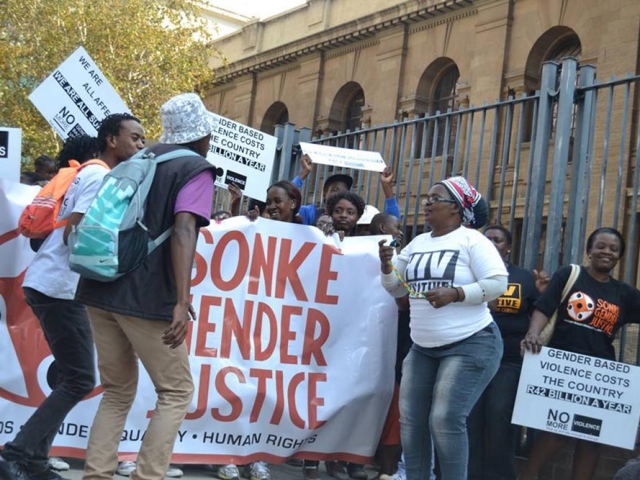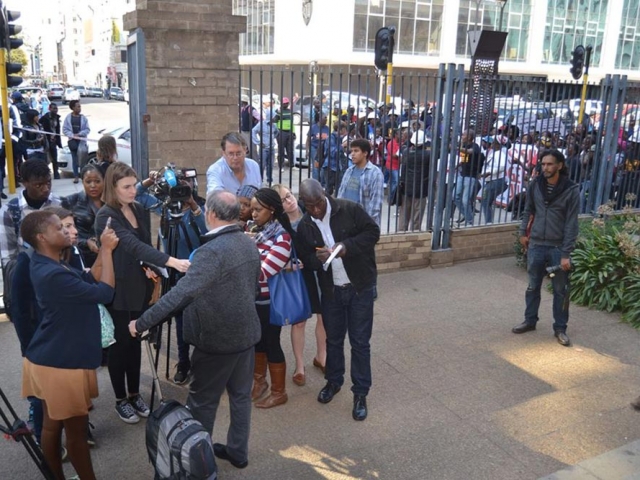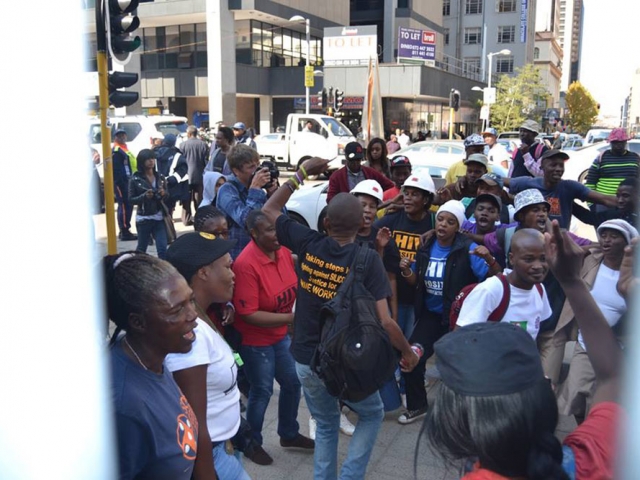Staff of Sonke Gender Justice and members of its community action teams (CATS) were out at the South Gauteng High Court earlier today (May 13 2016) to show solidarity with former and current mineworkers and their families when Judge Phineas Mojapelo handed down his judgement in the application for a class action lawsuit to hold the gold mining industry accountable for failing to prevent and to respond to silicosis in the gold mines.
Sonke is very excited about the outcome of the case – the court has paved the way for a class action lawsuit.
Silicosis is a degenerative lung disease arising from exposure to, and inhalation of, silica dust during mining. It is irreversible, incurable and grows progressively worse, yet it is entirely preventable. As a latent disease, it often only appears decades after exposure to the dust, with symptoms including shortness of breath, coughing and chest pains. Those with silicosis are also more likely to develop tuberculosis (TB).
Sonke intervened in the case as “friends of the court” and introduced evidence on the gendered impact of occupational lung disease in mine-sending communities. The responsibility for taking care of sick miners has been placed onto women living in poverty stricken rural mine-sending areas, where there is often no access to running water, and limited transportation to healthcare services. Hence, when mineworkers return home sick with silicosis and TB, it is usually women and children who take care of them – at considerable personal and financial expense.
Caring for someone experiencing these illnesses can be full time work, and is provided on an unpaid basis. As the law currently stands, it is difficult for caregivers to receive just compensation, equal to the amount the deceased miners they cared for could receive through the courts, which in itself is already an insufficient amount. Through the court proceeding, Sonke addressed this with the underlying aim that dependents of deceased mineworkers will be allowed to receive adequate compensation for their work.

